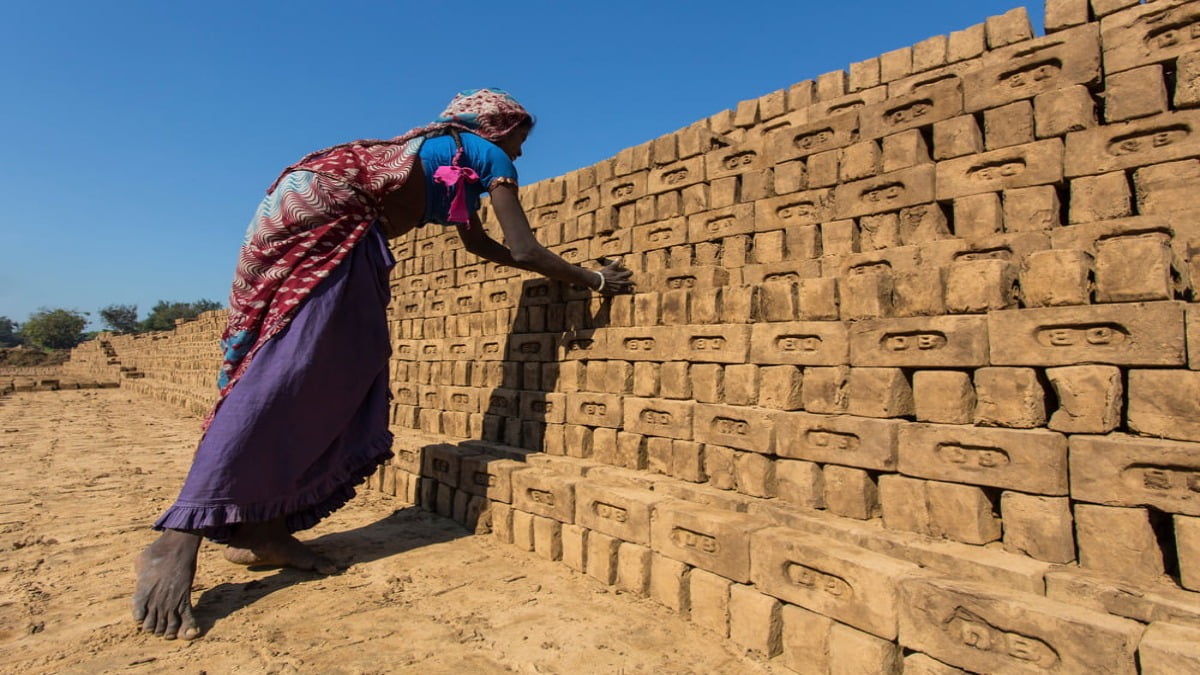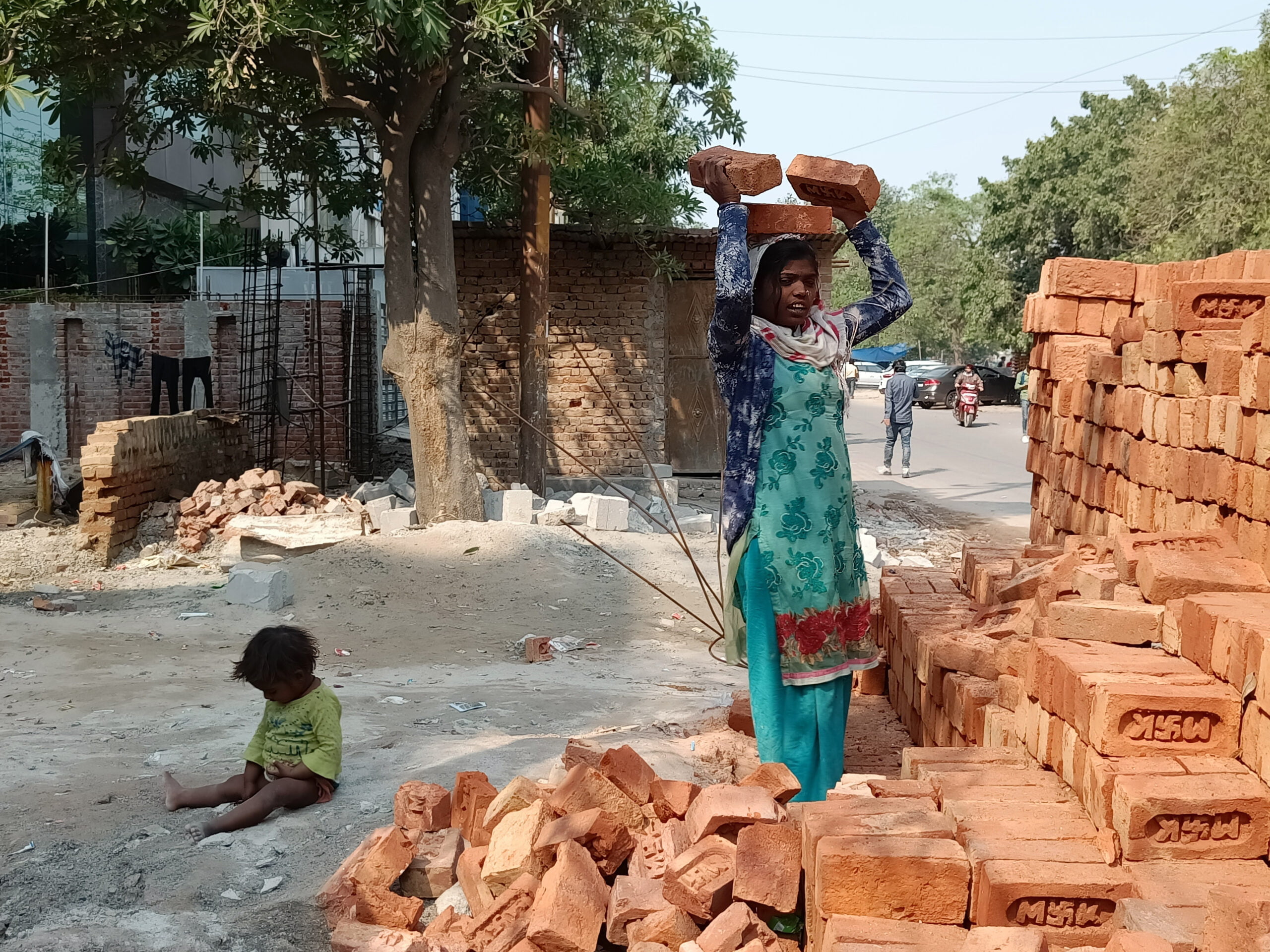New Delhi, January 30, 2024: In a historic move, the Union Ministry of Women and Child Development, under the leadership of Minister Smriti Irani, has introduced transformative directives aimed at revolutionising the work landscape for women in the construction sector.
This comprehensive set of policies, primarily focused on maternity benefits, seeks to address longstanding gender disparities in an industry where women have historically encountered unique challenges.
This comprehensive set of policies, primarily focused on maternity benefits, seeks to address longstanding gender disparities in an industry where women have historically encountered unique challenges. However, a nuanced examination is crucial, especially considering the potential limitations for unregistered labourers and those without individual bank accounts.
Maternity leave extension for women labourers: a paradigm shift
The most notable aspect of the directives is the extension of maternity leave for women in the construction sector. According to the directive sent out by the labour ministry to all companies in the infrastructure sector, registered construction workers are now mandated to be given 26 weeks of maternity leave by their employers. This marks a significant departure from the earlier norms and is a laudable step towards recognising and addressing the specific needs of women in this workforce.
Union Minister Smriti Irani emphasised the inclusivity of these directives by highlighting their extension to the unorganised workforce in the construction sector. This is a substantial acknowledgment of the challenges faced by women in this industry, where labour is often informal, and employment conditions can be precarious.
Empathy in adversity: maternity leave for miscarriages
One of the noteworthy inclusions in the directives is the provision for maternity leave in case of miscarriages. If a woman, part of the construction industry, suffers a miscarriage, she is now entitled to leave with wages at the rate of maternity benefits for a period of six weeks immediately following the day of her miscarriage.
This demonstrates a nuanced understanding of the physical and emotional toll such incidents can take on women and underscores the government’s commitment to supporting them during challenging times.
Financial empowerment: wages directly to bank accounts
The directive also addresses a longstanding issue concerning the payment of wages to women labourers. It stipulates that every female employee in a construction site should have her wages deposited directly into her bank account by the company.
This move aims to eliminate intermediaries who might exploit the traditional cash-based payment system, particularly affecting women who are often forced to part with a portion of their wages to supervisors.
This move aims to eliminate intermediaries who might exploit the traditional cash-based payment system, particularly affecting women who are often forced to part with a portion of their wages to supervisors. Minister Irani sees this as a step towards digital democracy, noting that under Prime Minister Modi’s government, 24 crore women now have bank accounts.
However, it’s crucial to acknowledge a potential limitation here. Many women labourers, especially those in the unorganised sector, may not have individual bank accounts. This could pose a challenge to the effective implementation of this directive for a significant segment of the female workforce in construction.
Inclusivity beyond maternity: comprehensive workplace reforms for women labourers
The directives go beyond maternity benefits, addressing several key aspects of workplace conditions for women in the construction sector. The requirement for gender-neutral creche breaks is a positive step toward ensuring that both men and women have equal opportunities to care for their children or dependents without facing discrimination or biases based on gender roles.
Health provisions, including safe sanitation facilities, the establishment of Internal Complaints Committees, and night transport facilities, are critical components of the directives. These measures aim to create a safer and more supportive work environment for women in construction, recognising their specific needs and vulnerabilities.
Challenges and limitations: unregistered labourers and bank account dependency
While these directives mark a significant stride towards gender inclusivity in the construction sector, certain challenges and limitations must be acknowledged. The extension of benefits, including maternity leave and direct deposit of wages, is contingent on the registration of construction workers. The unorganised sector, comprising a substantial portion of women labourers, might not reap the full benefits of these directives.
Additionally, the requirement for wages to be deposited directly into bank accounts assumes that all women labourers have individual bank accounts. This assumption may not hold true for a significant number of women in the unorganised sector, potentially excluding them from the intended financial empowerment.
A step towards gender equality
In conclusion, the new directives for women in construction work represent a commendable effort by the government to address gender disparities in a traditionally male-dominated industry. The focus on maternity benefits, inclusive workplace reforms, and financial empowerment are crucial steps towards creating a more equitable work environment.
However, the government must remain vigilant in ensuring that these benefits reach all women in the construction sector, irrespective of their registration status or access to individual bank accounts. Further refinements and targeted initiatives may be necessary to address the unique challenges faced by unregistered labourers and those without bank accounts.
Further refinements and targeted initiatives may be necessary to address the unique challenges faced by unregistered labourers and those without bank accounts.
As we applaud this significant stride towards gender equality, we must also remain attentive to the nuances and intricacies that accompany the effective implementation of these directives, striving to make the construction sector a more inclusive and supportive space for women.
About the author(s)
Maria Mabood is a 24-year-old graduate with both Bachelor's and Master's degrees in Economics from Jamia Millia Islamia. She is an aspiring researcher, passionate about delving into the intricacies of economic theory.
Her enthusiasm lies in both writing and research, where she aims to combine her academic knowledge with creative expression. She is eager to contribute valuable insights to diverse topics and explore new horizons through collaborative efforts.









